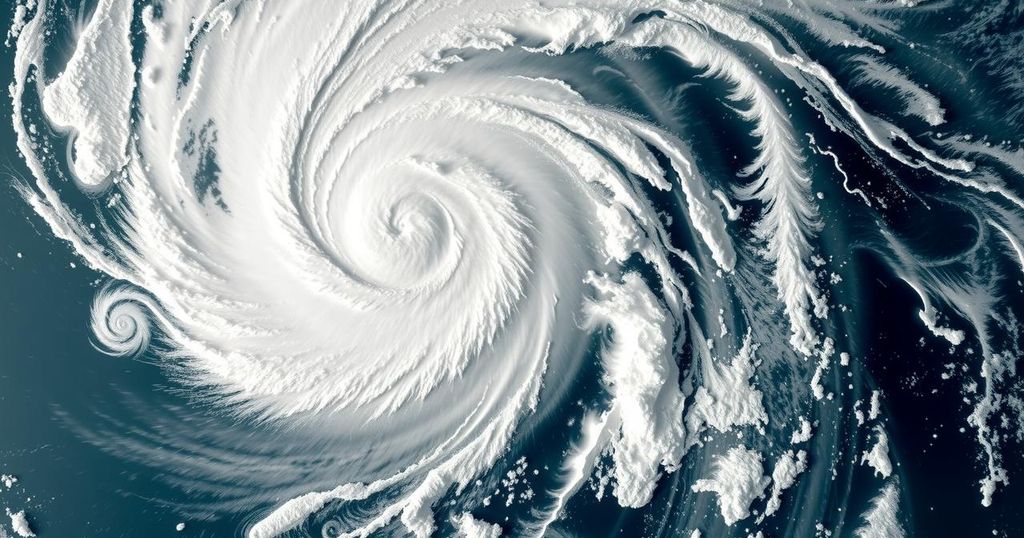Cyclone Chido Devastates Mozambique, Claiming Lives and Displacing Thousands

Tropical Cyclone Chido has resulted in at least 94 fatalities in Mozambique and affected around 620,000 people. With wind gusts up to 260 km/h and heavy rainfall, the cyclone has caused severe destruction, especially in Cabo Delgado province. The incident underscores the risks linked to climate change and indicates a challenging recovery process ahead for the affected regions.
Tropical Cyclone Chido has been causing significant devastation in Africa for a week, leading to the loss of at least 94 lives in Mozambique. The cyclone has severely impacted 620,000 individuals, particularly in the Cabo Delgado province, where winds reached up to 260 km/h and daily rainfall exceeded 250 mm. The National Emergency Management Agency has confirmed these figures and highlighted the cyclone’s destructive nature as one of the worst storms in recent history, emphasizing links to climate change as a potential exacerbating factor.
Daniel Chapo, the presidential candidate from the ruling Frelimo party, recently visited the affected areas, urging citizens to extend their solidarity toward the victims. The cyclone is perceived as a harbinger of a lengthy recovery process across the affected regions of Africa. Furthermore, additional crises have emerged in the region, including the recent outbreak of a severe illness in Congo and environmental concerns following oil tanker accidents in the Kerch Strait.
The recent devastation caused by Tropical Cyclone Chido in Mozambique highlights the growing impact of extreme weather events attributed to climate change. Cyclones such as Chido, with their intense winds and heavy rainfall, pose a significant threat to vulnerable populations, especially in coastal regions of Africa. The storm’s effects extend beyond immediate fatalities, bringing long-term humanitarian challenges, infrastructural damage, and potential long-term ecological impacts. Such disasters call for comprehensive disaster preparedness and response strategies to mitigate future risks and support recovery efforts.
In conclusion, Tropical Cyclone Chido represents a critical environmental disaster impacting Mozambique and the wider African region. The cyclone’s destructive power and its link to climate change highlight the urgent need for global action on climate resilience and disaster preparedness. As recovery efforts commence, the solidarity shown by the community and political leadership will be essential in aiding the affected populations and rebuilding the impacted areas.
Original Source: news.novyny.live






